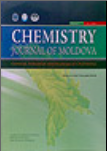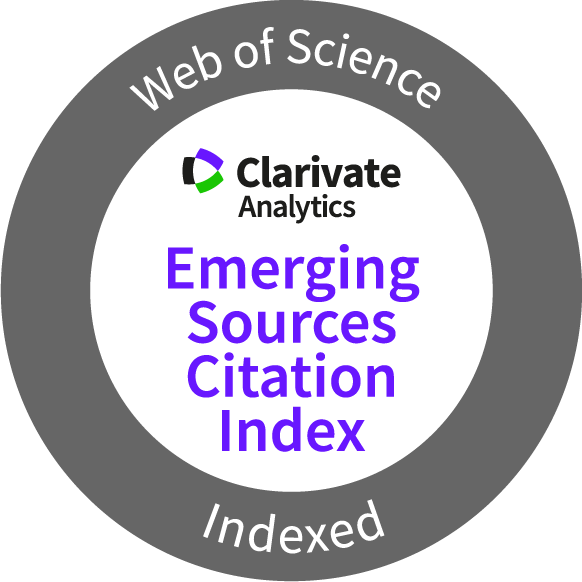Chemistry Journal of Moldova
Ethical Standards and Procedures
Chemistry Journal of Moldova Ethical Standards and Procedures
(These ethical standards are based on the Chemistry Journal of Moldova Editorial Policy and are in agreement with existing Elsevier policies and COPE Best Practice Guidelines for Journal Editors)
The Institute of Chemistry of the Academy of Sciences of Moldova, as publisher of Chemistry Journal of Moldova, takes seriously the responsibility to reflect the highest in publication ethics and commits to meet and uphold standards of ethical behavior at all stages of the publication process.
The Institute of Chemistry of the Academy of Sciences of Moldova, as publisher of Chemistry Journal of Moldova, takes seriously the responsibility to reflect the highest in publication ethics and commits to meet and uphold standards of ethical behavior at all stages of the publication process.
Chemistry Journal of Moldova serves the international community in all areas of Chemistry and promotes academic discussions of topics, irrespective of their nature – whether religious, gender-based, environmental, ethical, political or other potentially or topically contentious subjects. Publication of an article in an academic peer-reviewed journal involves many parties, each of which plays an important role in manuscript management procedure. In this context, the author, the journal editor, the peer-reviewer and the publisher have responsibilities to meet expected ethical standards at all stages in their involvement from submission to publication of an article.
Publication and authorship
- Papers are submitted on the understanding that the subject matter has not been previously published and is not being submitted elsewhere.
- Authors who want to publish translations of the articles that have been published elsewhere should ensure that they have appropriate permission(s), should indicate clearly that the material has been translated and re-published, and should indicate clearly the original source of the material.
- Authorship should be limited to those who have made a significant contribution to the conception, design, execution, or interpretation of the reported study. All those who have made significant contributions should be listed as co-authors. Where there are others who have participated in certain substantive aspects of the research project, they should be acknowledged or listed as contributors. The corresponding author should ensure that all appropriate co-authors and no inappropriate co-authors are included on the paper, and that all co-authors have seen and approved the final version of the paper and have agreed to its submission for publication.
- Redundant (multiple) publication / re-publication: abstracts and posters at conferences, results presented at meetings (for example, to inform investigators or participants about findings), and results databases (data without interpretation, discussion, context or conclusions in the form of tables and text to describe data/information where this is not easily presented in tabular form) are not considered to be prior publication.
- If applicable, authors can include an information about who has funded research and on the role of the funders in the research.
Author's responsibilities
- Authors must accept full responsibility for the factual accuracy of the data presented and should obtain any authorization necessary for publication.
- Authors must confirm that the manuscript as submitted is not under consideration or accepted for publication elsewhere. Where portions of the content overlap with published or submitted content, to acknowledge and cite those sources.
- Authors must confirm that all the work in the submitted manuscript is original and to acknowledge and cite content reproduced from other sources. To obtain permission to reproduce any content from other sources. Plagiarism takes many forms, from “passing off” another’s paper as the author’s own paper, to copying or paraphrasing substantial parts of another’s paper (without attribution), to claiming results from research conducted by others. Plagiarism in all its forms constitutes unethical publishing behavior and is unacceptable. Submitted manuscripts which are found to contain plagiarized text are rejected.
- Authors should ensure that any studies involving human or animal subjects conform to national, local and institutional laws and requirements and confirm that approval has been sought and obtained where appropriate. Authors should obtain express permission from human subjects and respect their privacy.
- The contents of manuscripts are the sole responsibility of the authors.
- Manuscripts submitted under multiple authorship are reviewed on the assumption that all listed authors concur in the submission and that the final version has been seen and approved by all authors.
- The corresponding author should ensure that all appropriate co-authors and no inappropriate co-authors are included on the paper, and that all co-authors have seen and approved the final version of the paper and have agreed to its submission for publication.
- The authors must declare any potential conflicts of interest.
- To notify promptly the journal editor or publisher if a significant error in their publication is identified and cooperate with the editor to retract or correct the paper.
Peer review / responsibility for the reviewers (Reviewer guidelines)
- Chemistry Journal of Moldova follows the single blind peer-review procedure for all submitted manuscripts.
- The identity of the reviewers is not disclosed to the authors of the manuscript.
- All papers are sent to reviewers who advise the Editor on the matter of acceptance in accordance with the high standards required.
- Reviewers’ names are not disclosed, but their views are forwarded by the Editor to the authors for consideration.
- The anonymity of reviewers allows for objective assessment of the manuscript by reviewers and is also free from any influence by the authors on the reviewers comments.
- Reviewer assists the editor in making editorial decisions, by reviewing the manuscript objectively, and through the editorial communications with the author may also assist the author in improving the paper quality.
- Reviewers should identify relevant published work that has not been cited by the authors. To alert the editor to any published or submitted content that is substantially similar to that under review.
- Each manuscript received for review must be treated as confidential document. Privileged information or ideas obtained through peer review must be kept confidential and not used for personal advantage.
- Reviewers should not consider manuscripts in which they have conflicts of interest resulting from competitive, collaborative, or other relationships or connections with any of the authors, companies, or institutions connected to the papers.
Editorial responsibilities (Editorial Board responsibilities)
- Editors and Editorial Board are responsible for everything published in Chemistry Journal of Moldova.
- Editors should provide authors with clear submissions guidelines.
- Editors are responsible for the quality of the published material.
- Editors decide to accept or reject a paper for publication only based on the paper’s importance, originality, and clarity, and the manuscript’s relevance to the journal.
- Editors must evaluate manuscripts for their intellectual content without regard to race, gender, sexual orientation, religious belief, ethnic origin, citizenship, or political philosophy of the authors.
- Editors should protect peer reviewers identities.
- The editor and any editorial staff must not disclose any information about a submitted manuscript to anyone other than the corresponding author, reviewers, potential reviewers, other editorial advisers, and the publisher, as appropriate.
- Privileged information or ideas obtained through peer review must be kept confidential and not used for personal advantage.
- Editors should cooperate with authors if a significant error in their publication is identified, in order to retract or correct the paper.
- Editors should not consider manuscripts in which they have conflicts of interest resulting from competitive, collaborative, or other relationships or connections with any of the authors, companies, or institutions connected to the papers. It is the obligation of the editor to ask a co-editor, associate editor or other member of the editorial board instead to review and consider the manuscript.
Publishing ethics issues
- The Institute of Chemistry of the Academy of Sciences of Moldova as publisher must ensure that good practice is maintained to the standards outlined above.
- If misconduct and unethical behavior is identified, it should be brought to the attention of the editor and publisher at any time, by anyone.
- Submitted manuscripts which are found to contain plagiarized text are rejected.
- Each manuscript received for review is treated as confidential document. It must not be shown to or discussed with others except as authorized by the editor.
- When an author discovers a significant error or inaccuracy in his/her own published work, it is the author’s obligation to promptly notify the journal editor or publisher and cooperate with the editor to retract or correct the paper. If the editor or the publisher learns from a third party that a published work contains a significant error, it is the obligation of the author to promptly retract or correct the paper or provide evidence to the editor of the correctness of the original paper.
- All authors should disclose in their manuscript any financial or other substantive conflict of interest that might be construed to influence the results or interpretation of their manuscript. All sources of financial support for the project should be disclosed. Examples of potential conflicts of interest which should be disclosed include employment, consultancies, stock ownership, honoraria, paid expert testimony, patent applications/registrations, and grants or other funding. Potential conflicts of interest should be disclosed at the earliest stage possible.






